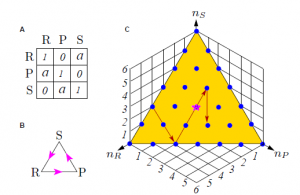I was struck by a line in Lattice games and the Economics of aggregators, by P. Jordan, U. Nadav, K. Punera, A. Skrzypacz, and G. Varghese, that reads:
A vendor that can provide good tools for to reduce the cost of doing business F is likely to open the floodgates for new small aggregators to cater to the long tail of user interests — and reap a rich reward in doing so.
You see? Struggling through all the game theory parts of the paper were worth your time!
A topic map application that enables small aggregators select/re-purpose/re-brand content for their “long tail of user interests” could be such an application.
Each aggregator could have their “view/terminology/etc.” both as a filter for content delivered as well as how it appears to their users.
Not long tails but think of the recent shooting incident in Aurora.
A topic map application could deliver content to gun control aggregators, with facts about the story that support new gun control laws, petitions and other activities.
At the same time, the same topic map application could delivery to NRA aggregators, the closest gun stores and hours for people who take such incidents as a reason to more fully arm themselves.
Same content, just repurposed on demand for different aggregators.
True, any relatively sophisticated user can setup their own search/aggregation service, but that’s the trick isn’t it? Any “relatively sophisticated user.”
Thinking not so much as a “saved search” or “alert”, dumpster diving is only to productive and it is tiring, but curated and complex searches that users can select for inclusion. So they are getting the “best” searches composed by experts.
I am sure there are other options and possibilities for delivery of both services and content. Topic maps should score high for either one.
PS: Slides from Stanford RAIN Seminar

